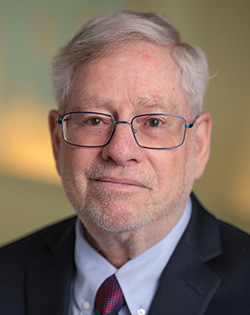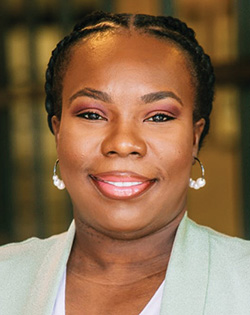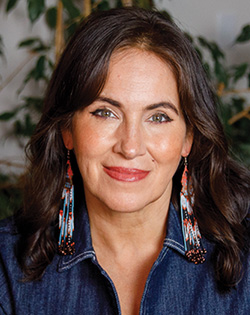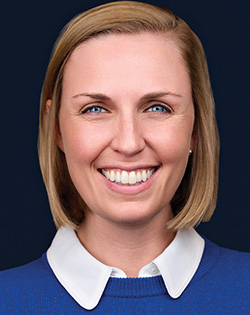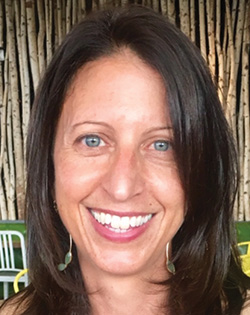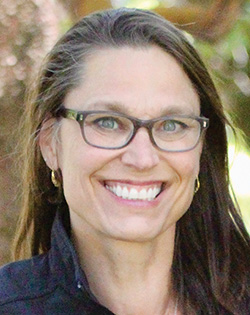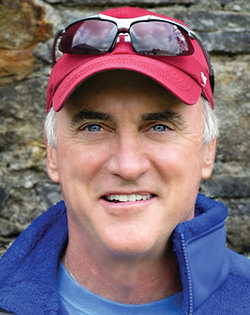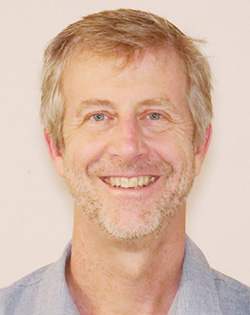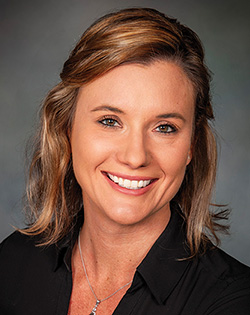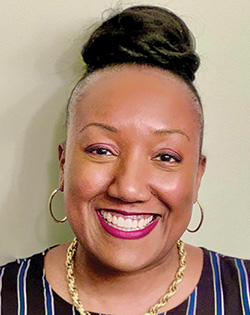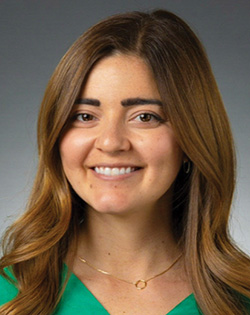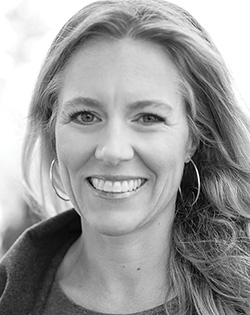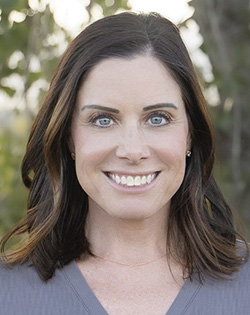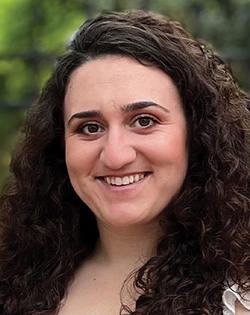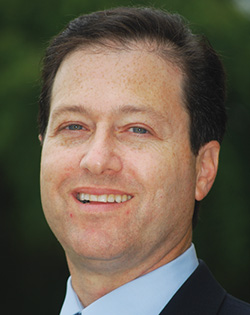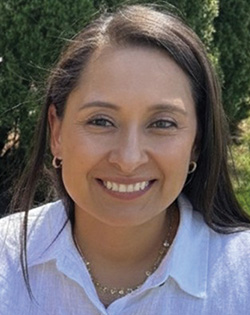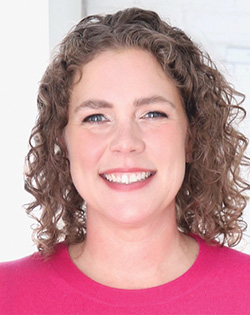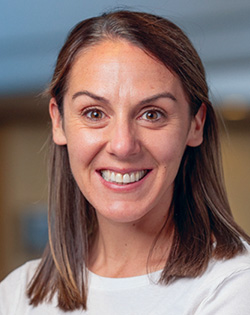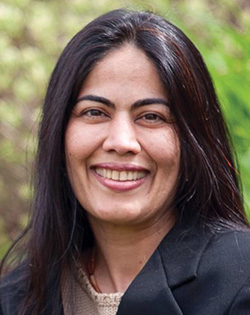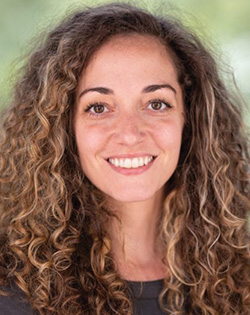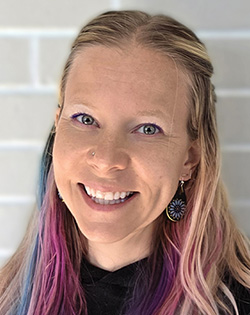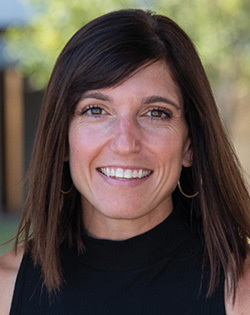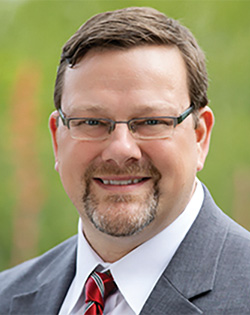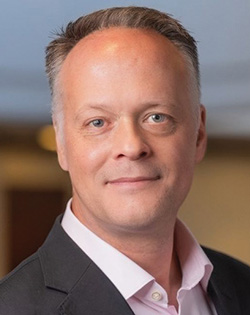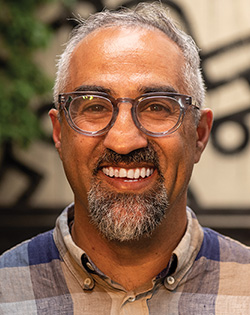

Agenda
Attend a preconference Intensive Training Seminar for a small group, in-depth learning experience. All sessions meet 9:00 a.m.-5:00 p.m, March 24, 2026. Select your Training when registering.
9:00 AM - 5:00 PM
This Intensive Training Seminar will feature the importance of measuring program outcomes and communicating those outcomes to the various key stakeholders engaged in workplace health and well-being programs, including workers, practitioners, sponsors, industry and professional colleagues, and the general public. The seminar will begin by summarizing the business case for building, enhancing, and sustaining workplace health programs.
The four key elements include the following
- Assessment of the “problem” facing an organization that establishes the business case for initial or continued investment in a program – constructing a “burning platform”
- Planning, both strategic and tactical, to guide employer decisions regarding priorities and use of scarce resources
- Implementation of evidence-based interventions that align with employers’ and workers’ needs, interests, and capacity
- Evaluation of program success in the following three categories: structure, process, and outcomes.
The focus will be on building a measurement and evaluation (M&E) framework that relies heavily on survey data, health risk assessments, and access to administrative files that can be used to document a positive return on investment (ROI) and value on investment (VOI). The ITS will conclude with teams preparing a “real-world” M&E plan for one of their organizations which requires answering nine basic questions in planning an effective evaluation project. The seminar will provide a practical toolkit for health and well-being program managers and professional program evaluators.
9:00 AM - 5:00 PM
What happens in your brain when you are giving a speech or presentation? Do you panic and become overwhelmed with nerves, or are you comfortable and confident in the spotlight? Public health and health promotion professionals are often asked to take the mic, but our education doesn’t prepare us to be calm and confident presenters. Thankfully, public speaking is a skill that can be honed. This training will prepare you to embrace uncertainty and find the fun in public speaking. . We’ll practice vocal variety to bring your true authentic voice and presence to any presentation, as well as low-stakes exercises to practice presenting in front of your peers.
Attendees will leave this session feeling confident in themselves, their voice, and their ability to handle uncertainty and even thrive in it. Better communication and presentation skills are key to our public health field, and the better we communicate, the more we can help the populations we serve.
9:00 AM - 5:00 PM
This skills-based seminar for health promotion professionals ready to elevate themselves beyond burnout prevention and whole-person well-being. Grounded in behavior change theory and positive psychology, this training introduces an adaptable framework to guide individuals and communities out of survival mode and into sustainable thriving. Participants will explore how chronic stress, emotional fatigue, and disconnection from values impact health outcomes as well as how to interrupt these patterns using scalable coaching strategies. You’ll engage in dynamic exercises and multidimensional check-ins that span physical, emotional, social, spiritual, and professional wellness.
Whether you work in healthcare, education, the workplace, or community wellness, this session will equip you with practical scripts, micro-shift planning tools, and system-adaptable templates. Learn how to spot survival mode, build coaching interventions that stick, and help people reconnect with their identity, values, and energy.
8:30 AM - 10:15 AM
We are living through a period of profound and accelerating change. Global epidemics of obesity and chronic disease, skyrocketing healthcare costs, the rise of AI, and geopolitical and climate disruptions are reshaping how we live, work, and survive. For health promotion professionals, this demands a new kind of leadership—one rooted in adaptability and whole-person resilience.
At the same time, neuroscience has quietly uncovered what may be the most important health discovery of our time: the habenula, a small structure in the brain that acts as a master control switch for behavior, motivation, and mood. When activated by shame, judgment, or unmet expectations, the habenula suppresses the very efforts we promote—healthy eating, exercise, mental well-being, and whole person health. Understanding this mechanism changes everything.
In this keynote, Kyra Bobinet, M.D, M.P.H., presents her knowledge from 30+ years of studying and directing health interventions and discovering the Iterative Mindset—a novel, neuroscience-based framework born from her research with people overcoming major social and health barriers. Backed by validated studies, the Iterative Mindset outperforms common approaches like performance-based goals, tracking, and incentives by aligning with how the brain is actually wired to change. Dr. Bobinet offers a new model for health and behavior change professionals: One that activates adaptability, builds true resilience, and helps people thrive in an uncertain world.
11:00 AM - 12:05 PM
Neuroscience is everywhere in digital mental health. Several apps claim to boost cognitive performance, promote emotional regulation, or enhance mental fitness. Brain-based branding is common, but true scientific grounding is often missing. This session presents a real-world case study of how science was applied to strengthen the credibility of two neuroscience-inspired tools: a cognitive training platform and a meditation and sleep app.
This session will walk participants through a process of developing a neuroscience-informed conceptual model; constructing a scoring system grounded in behavioral science and designing user-facing evaluations to assess perceived changes in cognition, emotion, and daily function. The session also highlights how these efforts supported two peer-reviewed publications and two white papers, providing early evidence in a space where scientific clarity is often lacking. Participants will gain practical insight into how applied science can be used to clarify product claims, define meaningful outcomes, and strengthen communication with users, researchers, and partners. This session is especially relevant for clinicians, researchers, and health promotion professionals who engage with digital tools and want to better understand how science can support post-launch credibility.
11:00 AM - 12:05 PM
Dr. Ron Goetzel will provide an update on the most recent workplace health and well-being research studies including those that address the controversy over whether these programs are effective across multiple outcome measures. He will also address the shift from a return-on-investment (ROI) rationale to one that emphasizes value-on-investment (VOI).
The session will introduce the APIE model as a methodology to assess, plan, intervene, and evaluate the effectiveness of programs including business case development, program design, effective implementation, and rigorous evaluation. Controversial issues will be addressed including why so many well-intentioned programs fail and what ethical standards need to be addressed in designing programs that satisfy the needs of employers and diverse employee populations.
11:00 AM - 12:05 PM
This session will explore the neuroscience of failure, and the opportunity failure presents to rewire the brain into a catalyst for learning, innovation, and resilience. This shift reduces the brain’s threat response and opens the door to neuroplasticity—the brain’s ability to rewire itself through new experiences. We will empower attendees to tackle the word “failure” and its negative association head-on and without fear.
Drawing on leading research in psychological safety and growth mindset, this session will provide practical, evidence-based applications for leaders and teams to create environments where employees feel safe to take risks, admit mistakes, and learn from mistakes without fear of judgment or punishment. Cultivating this environment allows employees to stay calm and engage in higher-level thinking. Attendees will gain insight into how to reshape organizational responses to failure, making it a driver for resilience and continuous improvement through interactive activities and evidence-based approaches.
11:00 AM - 12:05 PM
Despite decades of investment in wellness, many health promotion efforts still focus on prescribing what people should do—exercise more, eat better, reduce stress—without addressing how the human brain actually works to accomplish these tasks. That’s where neuroscience comes in. By teaching the basic science of neuroplasticity, self-regulation, and the brain–body connection in plain language, we empower individuals to recognize triggers, shift out of reactive states, cultivate energy-supportive thoughts, and build new habits more effectively.
The goal of this session is to empower health promotion professionals with a practical understanding of the brain’s operating system—how thoughts shape emotions and behaviors, how the stress response hijacks decision making, and how practices such as mindfulness and reframing literally change neural wiring. With this practical understanding, health promotion professionals can close the gap between good intentions and actual, meaningful change for those they serve. If you are in a role where stress, burnout, and disengagement are high and your current solutions do not meet the need, then this session is for you. Be prepared to discover how managing your energy—not just your time—is the new key to leading with clarity, calm, and confidence. Learn the neuroscience behind emotional triggers, how to prevent reactivity through daily energy care, and why the future of leadership depends on self-regulation and presence. Leave with practical tools to lead from your most powerful state—no matter what comes your way.
11:00 AM - 12:05 PM
The information age has brought many stress-related problems including digital toxicity, digital dementia, cognitive impairment, emotional burnout and poor sleep. Current workplace habits forced by COVID-19 pandemic have only magnified these problems. It has also raised more questions about the issues associated with work life balance. Today, with the prolific use of screen time and countless online video events (e.g., Zoom) people are wiring their brains (i.e., making neuroplastic changes) for stress. As issues rise about addictive screentime, so too does a deeper interest in the practice of meditation (e.g., mindfulness), perhaps as a means for cognitive balance. Experts from MIT and Stanford University are now expressing concern with our love affair with technology, citing an increased compromise of cognitive skills including short-term and long-term memory, attention span and critical thinking. If digital toxicity is a poison could the regular practice of meditation be the antidote?
2:00 PM - 3:05 PM
While brain health is a major global concern with over $1 trillion per year lost in productivity and an estimated 12 billion working days lost to mental health challenges, its definition and its role in the workplace remain unclear to most employers. Today’s workforce is retiring later than ever before, and there is a critical need for employers to focus on healthy aging and prioritize neurological health. Mental health remains a leading cause of absenteeism and presenteeism across the world. Together, these affect not only employee health but also workplace performance and organizational outcomes, demonstrating that employers play a crucial role in employee brain health.
In this engaging panel session, three senior presenters from across academia and the industry will discuss workplace brain health. An introduction to brain health, brain capital, and brain economy will be provided, and applications of brain health in the workplace, using examples from across sectors, will be discussed. Finally, we will delve into the current state of workplace brain health measurement, explore the field’s future prospects, and present the results of ongoing pilot projects. Innovative approaches using artificial intelligence, skill-building tools, and human flourishing models will be discussed.
-
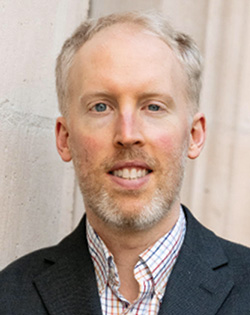 Harris Eyre, M.D., Ph.D.
Harris Eyre, M.D., Ph.D. -
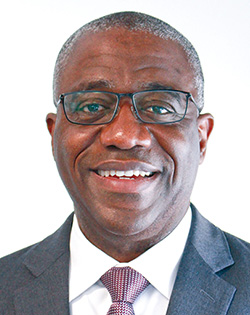 Lawrence Jones, Ph.D.
Lawrence Jones, Ph.D. -
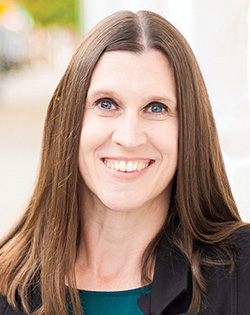 Krystal Sexton, Ph.D.
Krystal Sexton, Ph.D.
2:00 PM - 3:05 PM
How do elite athletes build resilience, stay motivated, and form high-performing habits under intense pressure, and how can those same tools support whole-person health for the rest of us? Specifically, how can we look to the intersections of sport psychology and neuroscience to offer a brain-based model for sustainable behavior change?
Dr. Bob Swoap draws on three decades of firsthand experience working with high-level athletes, clinical populations, and students to explore these questions. Swoap connects real-world stories from the field, the therapy room, and the classroom with research in neuroscience, motivation science, and mindfulness-based practices.
Participants will engage in experiential exercises designed to translate these insights into everyday strategies, including mental recovery tools, values-driven motivation, attention training, and resilience-building practices that can be adapted across diverse settings. Approaches are grounded in peer-reviewed research, clinical trials, and applied work with high performers. Whether you’re supporting individuals through health coaching, therapy, education, or programming, this session offers a dive into tested methods for fostering long-term change.
*Note: This session revisits and expands on Dr. Swoap’s original 2006 ASHP presentation, "The Seven Habits of Highly Effective Athletes: Applying Sport Psychology to Health Promotion, now," updated with a deeper neurobiological lens and broader application to diverse health promotion contexts.
2:00 PM - 3:05 PM
Psychedelic-assisted therapy is moving from clinical trials to employer health plans—and health promotion professionals must be prepared. This session explores the legal and ethical terrain of covering psychedelic mental health treatments such as ketamine, MDMA, and psilocybin use. Designed for wellness and health benefit professionals, this session delivers a practical overview of what’s legal now, what’s emerging, and what risks to watch.
Learn how self-insured employers are offering psychedelic therapy benefits, and how third-party vendors are helping with compliance. Understand the legal differences between ketamine and psilocybin, and the implications of off-label versus FDA-approved use. We’ll also discuss how MHPAEA mental health parity laws apply, especially in comparison to popular benefits such as GLP-1 coverage for weight loss. You’ll also hear about state-specific issues—such as licensing and scope of practice—and how they affect provider access. Attendees will walk away equipped with the knowledge to evaluate or advise on employer coverage of psychedelic therapy, with a focus on legal compliance, ethical framing, and workplace integration.
2:00 PM - 3:05 PM
The brain has an incredible ability to adapt, change, and create new pathways, which is a scientific concept known as neuroplasticity or "rewiring your brain." This ongoing process occurs throughout life and shows that the brain functions more like a muscle than a stagnant organ. But both good and bad habits can shape our brain’s capacity for "rewiring," so how can health promotion professionals support the optimization of brain health in the communities they serve? This session will explore how daily habits such as sleep, nutrition, movement, gratitude, and the prevention of injury and technology overload can have a significant and positive impact on a person’s cognitive and structural brain health.
Join this session for an interactive exploration of various cognitive stimulation exercises (including a set of techniques, strategies and materials used to improve performance and effectiveness of memory, attention, language, reasoning and planning) as well as neurobic activities to incorporate into your health promotion practice. This session is beneficial for all individuals, regardless of their client population and will focus on preventive measures related to brain wellness and lifestyle. It will be particularly helpful for caregivers and those interacting with individuals facing neurodegenerative diseases or brain health challenges.
2:00 PM - 3:05 PM
Nobody wants to be a jerk, but we all act like one at times. Most workplace incivility isn't caused by bad people; it's created by organizational pressures that trigger our threat-detection systems. When constant deadlines and overwhelming stress disrupt home lives, people have no respite and shift into survival mode. The resulting flood of stress hormones literally hijacks rational thinking—which can lead anyone to act like a jerk.
To make things worse, that "pit in our stomach" feeling when we're on the receiving end of incivility? That's not just an emotion—it's our body responding to a perceived threat. This causes victims to lose productive time ruminating, planning retaliation, or considering their exit. The heartbreaking truth is that incivility spreads like wildfire, with even witnesses absorbing the stress and experiencing declined performance. That's why incivility costs organizations thousands per incident. But here's the game-changer: While civility training often falls flat because "being polite" doesn't heal these wounds or inspire bystanders, kindness does something magical. That warm feeling when we give, receive, or witness kindness is our experience of the body's healing response—creating positive ripple effects that transform teams from the inside out.
This session will equip you with eye-opening data on incivility's true costs and practical strategies for building cultures where kindness becomes the norm, minds and bodies can heal, people care to stay, and everyone wins.
3:25 PM - 4:30 PM
Sexual health is a key part of overall well-being, but it's often left out of workplace wellness conversations. While most initiatives focus on fitness, nutrition, and stress management, they often leave out the complex ways that stress and burnout affect our personal lives, especially our sexual and relational health.
Participants will learn how brain chemicals including cortisol, oxytocin, and dopamine affect both work and personal life. The session will discuss how workplace stress can lead to problems in relationships, low energy, and feeling disconnected both at home and at work. It will also discuss why talking about sexual wellness in the workplace can actually help people feel better and do better.
This session will provide practical ideas for how employers can support sexual well-being in ways that are thoughtful, inclusive, and grounded in science. Let’s challenge the silence, reduce the stigma, and make space for conversations that truly support the whole person.
3:25 PM - 4:30 PM
Discover how the simple act of cooking can unlock powerful pathways to mental, emotional, and social health. Grounded in neuroscience and public health research, this session explores cooking as a hands-on, therapeutic intervention that activates executive function, emotional regulation, and mindfulness. Through a series of evidence-based insights, you'll learn how culinary engagement reduces anxiety, builds confidence, fosters social connection, and improves overall well-being. Chef Evelyn Stokes, founder of Evelyn’s Midtown Kitchen, will guide you through a practical model for implementing cooking-based interventions in community settings, including wellness hubs, schools, health centers, and libraries. You’ll explore session structure, outcome measures (e.g., PHQ-9, GAD-7, cooking confidence scales), and real-world case studies that showcase scalable impact.
Whether you're a health professional, educator, or program designer, this session offers a roadmap to integrate culinary therapy into your practice. Gain tools to design, measure, and scale interventions that are not only culturally responsive but grounded in neuroscience. Attendees will leave with a toolkit to bring cooking into classrooms, clinics, and communities—not just as a life skill, but as a catalyst for whole-person well-being.
3:25 PM - 4:30 PM
Discover how implementation science can shape the future of health promotion and whole-person care. This session shares findings from an effectiveness-implementation hybrid study of a group-based lifestyle medicine program, the PAVING the Path to Wellness program, delivered in diverse clinical and community settings across the United States. The program integrates evidence-based behavior change strategies rooted in neuroscience, peer support, and provider connection to support participants in improving key lifestyle behaviors.
Through a mixed methods approach guided by established implementation science frameworks, the study uncovered both statistically significant improvements in health behaviors—such as nutrition, physical activity, social connection, stress management, substance use, and sleep—and rich insights into real-world implementation challenges and successes. You’ll learn how implementation factors (e.g., cost, administrative barriers, training) influence the scalability and sustainability of health promotion programs in practice.
What You’ll Gain:
- A practical understanding of how implementation science can guide the adaptation and scaling of whole-person health interventions.
- Actionable takeaways for designing and delivering group-based well-being programs in a way that’s feasible, acceptable, and sustainable.
- Evidence-informed implementation to support effective health promotion whether you’re a clinician, researcher, program manager, or wellness leader.
3:25 PM - 4:30 PM
Can we imagine a world where women’s health truly takes center stage and the perimenopausal transition is met with empathy, informed care, and respect? Each year, approximately two million women in the United States enter perimenopause, yet this life stage remains poorly understood and under addressed in both healthcare and workplace settings. In this engaging and dynamic presentation, Dr. Bourne, an assistant professor of nutritional sciences, invites participants to reimagine perimenopause, not as a setback, but as a turning point and an opportunity for transformation and the cultivation of resilience. Through storytelling, case studies, and interactive discussions, she will explore evidence-based strategies and personalized approaches that support neuroplasticity and holistic well-being, offering practical tools for "rewiring the brain" and "resetting the body". Attendees will leave with actionable resources appropriate for students, employees, patients, scientists, health professionals, educators, and organizational leaders. The session concludes with a brief, guided stress-reduction exercise that participants can use personally or share within their communities and professional settings. Join us to shift the narrative, promote resilience, and champion "the pause" for women at midlife.
3:25 PM - 4:30 PM
How essential is human connection? Even ChatGPT knows. When asked what it had learned about humans from billions of interactions, it included two comments about connection: 1) People crave to be seen and heard and 2) everyone wants to matter. Are these simply desires, or is there something more fundamental about human connection? Brain scans tell us that belonging with others doesn’t just feel good; it also impacts our cognitive development, promotes well-being, elevates attention and performance, alters behavior, and influences our choices. When exposed to feelings of exclusion or ostracization, teenagers experience decreased development in the rational thinking centers of the brain, leaving them prone to risk-taking and overreactions. As adults, even the anticipation of future exclusion lowers IQ, slows decision-making and reduces scores on standard tests.
To promote high performance, healthy choices, and thoughtful decision making, we must first provide our brains with ...a supportive network.
In this engaging, impactful session, we will explore:
- How and why brains evolved to need others
- How belonging (or not) impacts brain development
- The implications of social connections on health and work
- Ways each of us can enhance inclusion in our daily lives
Join Dr. Lynch as she describes the science of how we are wired to connect.
8:30 AM - 10:15 AM
In an era of growing awareness around mental health and brain science, we need more than isolated strategies—We need a truly integrated, whole-person approach to well-being. In alignment with this year’s conference theme, Wired for Well-Being, this keynote explores how a deeper understanding of the brain and nervous system can radically transform both mental health and overall quality of life.
Blending neuroscience and psychology with soul work and practical tools, Jocelyn Pepe delivers a powerful and personal keynote experience. Grounded in evidence-based research and shaped by her lived experience through adversity, burnout, and a traumatic brain injury, Jocelyn introduces a five-element framework addressing social, physical, mental, emotional, and spiritual wellbeing.
Attendees will learn how the brain and nervous system drive behavior, how chronic stress impacts neuroplasticity, and how whole-person practice can unlock resilience and lead to health and longevity. Jocelyn’s story, paired with actionable insights, empowers audiences to move from burnout to balance—and equips them with practical tools to support themselves and others. Participants will leave inspired and equipped to integrate brain-based, soul-aware strategies into their lives, workplaces, and communities.
11:00 AM - 12:05 PM
We are born to thrive. That is, we’re wired to move, to eat whole foods, to rest and restore, to focus, to matter, and to— connect all key elements to being well. So why do so many of us feel like we’re just surviving? This powerful session exposes the systemic forces that are undermining our well-being and how we can overcome them through collective efforts. In a dynamic and interactive session, you’ll have the chance to explore the cultural shifts and everyday pressures that are undermining our well-being; the leadership role we can each play to elevate well-being; and how we can all work together to create healthy ecosystems in our workplaces, our schools and even our homes, so that people don’t just survive, but thrive.
11:00 AM - 12:05 PM
The Okanagan Charter provides a powerful international framework for embedding health and wellbeing into the fabric of higher education from individual skills to policy and institutional culture change. This session will explore the historical context of the Charter and its role in shaping the global health-promoting campus movement. In 2023, the University of Colorado Boulder (CU) became one of the first 20 universities in the United States to formally adopt the Charter. Presenters will share successes and lessons learned from implementation at CU, highlighting the impact of campus-wide strategies that foster both institutional change and individual well-being. Participants will also learn about the Limerick Framework for Action and how it is advancing the operationalization of the Charter. While focused on institutions of higher education, many of the principles and strategies can be adapted for other organizations. This session will include an exploration of collective impact strategies that emphasize building partnerships, encouraging participation, and communicating progress.
11:00 AM - 12:05 PM
Peanut butter and chocolate are a combination loved by candy fans around the world. Health promotion often chooses to, or is asked to present itself in buckets such as physical health, mental health or social health. However, we know that a holistic approach is more effective. The combination of brain and heart may not cause your mouth to salivate, but when we effectively improve the connection between these two organs, great things happen, including providing a more holistic path to improve physical, mental and social connectedness, all at the same time.
The majority of adults in the United States have either hypertension or prehypertension as well as suffer from stress. We’re also well aware of the trend toward feeling disconnected and the alarming data on loneliness. These are a few of the health and well-being challenges that can be addressed with a specific form of mindfulness that combines elements of positive psychology and heart-focused breathing.
11:00 AM - 12:05 PM
What we eat provides fuel for living. It also shapes how we feel, think, and respond to life’s challenges. Additionally how we feel can shape what we eat. This session explores the powerful, two-way connection between food and mood, unpacking the relationship between nutrition, emotional regulation, and mental resilience. Through real-life examples and practical tools, participants will learn how food affects brain chemistry, stress hormones, and the gut microbiome as well as how emotions influence food choices, cravings, and digestion. You’ll gain strategies to support both mental and nutritional well-being and tools you can use in coaching, counseling, or wellness conversations right away. Whether you’re supporting clients through stress, burnout, emotional eating, or lifestyle change, this session will help you integrate food and feeling into one coherent, compassionate care plan.
You’ll walk away with clear guidance on nutrients and eating patterns that support emotional health as well as practical tools for client-centered coaching conversations around food and mood
Join us for a dynamic, evidence-informed session that bridges nutrition and mental health offering strategies for healing and thriving from the inside out.
11:00 AM - 12:05 PM
This session reveals how play and flow can be powerful tools for advancing well-being across physical, mental, emotional, and social domains. Health promotion professionals across settings are grappling with high rates of burnout, disengagement, and stress, whether in corporate wellness, clinical practice, or community-based programs. While many programs focus on physical or mental health in isolation, this session highlights tools that support the whole person through behavior and mindset shifts.
Participants will explore the characteristics of play and how the flow cycle (struggle, release, flow, recovery) supports behavior change and long-term well-being. These tools have been used to support healthcare professionals navigating chronic stress, help patients adopt sustainable routines, and re-engage teams in mission-driven work. Drawing from applied neuroscience and organizational psychology, attendees will leave with practical, customizable strategies to reframe routines, improve dynamics, and reset stress responses using playful interventions. These methods are intentionally designed to work in high-pressure, high-stakes environments.
If you support whole-person health at work, in clinical care, or in the community this session offers you actionable, science-backed tools to deepen engagement, reduce burnout, and foster sustainable change. You’ll also learn how playful leadership fosters resilience and well-being, without requiring anyone to “be fun.
2:00 PM - 3:05 PM
In today’s knowledge-driven economy, cognitive performance—creativity, focus, memory, and emotional regulation—is a critical asset for individual and organizational success. This session explores how forward-thinking employers are prioritizing brain health as a strategic imperative to boost resilience, productivity, and long-term well-being.
This session will highlight how a new development within the HERO Health and Well-Being Best Practices Scorecard in Collaboration with Mercer© can support organizations in embedding brain health into their long-term health and well-being strategy. The Brain Health Best Practice Score evaluates workforce strategies that support optimal brain function—ranging from emotional regulation and physical health to social connectedness and cognitive capacity. Attendees will explore how it can be used to identify high-impact opportunities and measure organizational progress. Join us to explore how brain health is emerging as a powerful lever for sustainable performance and well-being at work.
2:00 PM - 3:05 PM
What does it take to move beyond programs to build an authentic culture of well-being? This session introduces a practical guide for health promotion professionals who want to align vision, strategy, and implementation across their organizations. Join to learn about a systems-based approach that connects the dots between behavior change, leadership engagement, communication, and evaluation.
Participants will explore the five foundational elements of a health-promoting organization (why, who, what, how, and when), using real-world examples and interactive tools to reflect on their practice. Whether you're just starting to build a coalition or leading a well-being strategy for a campus, healthcare system, or community initiative, this session offers adaptable tools, frameworks, and discussion prompts to help you make it happen. Attendees will leave with a model they can use to guide planning, enhance collaboration, and tell a stronger story of impact. Expect to be engaged, inspired, and equipped with actionable steps you can apply immediately to advance your work and amplify your organization’s impact
2:00 PM - 3:05 PM
This session explores the cutting-edge neuroscience behind mindfulness and meditation practices and their practical applications for enhancing stress resilience and emotional regulation. Participants will learn how mindfulness modulates key brain circuits involved in the stress response, including the amygdala and prefrontal cortex, while improving vagal tone to promote parasympathetic nervous system balance. We will examine evidence from neuroimaging and physiological studies demonstrating how regular mindfulness practice reshapes neural pathways, reducing anxiety, improving mood, and enhancing cognitive flexibility.
Attendees will gain practical strategies to incorporate mindfulness, breathwork, and biofeedback into clinical and workplace settings to support mental, emotional, and spiritual well-being. This session highlights how integrative approaches can be tailored to diverse populations, empowering individuals to build resilience against chronic stress and emotional dysregulation. Clinicians, health coaches, and wellness practitioners will leave equipped with neuroscience-informed tools to foster holistic health promotion.
2:00 PM - 3:05 PM
What if the missing ingredient in most wellness programs isn’t the goal—it’s the group? This interactive session introduces a powerful, scalable method for using small-group SMART goals (“accountabilibuddy pods”) to promote sustainable health behavior change in any setting, whether a workplace, school, or health coaching program. Drawing from behavioral science and neuroscience, we’ll explore how social accountability, peer affirmation, and shared vulnerability enhance motivation, emotional regulation, and sustainable habit formation. You'll learn how to structure and facilitate short, recurring peer meetings where participants set specific, measurable, achievable, relevant, and time-bound goals tied to a well-being domain of their choice. The model has been tested in health psychology classrooms and adapted for adult populations, with remarkable effects on self-efficacy, consistency, and morale.
Attendees will walk away with a facilitation toolkit, sample templates, and firsthand experience of a SMART pod in action. Whether you're launching a new wellness initiative or looking to reinvigorate an existing one, this approach builds both individual capacity and community connection—because change is easier when we do it together.
2:00 PM - 3:05 PM
Nearly one in five employees identifies as neurodivergent, yet most organizations still rely on one-size-fits-all approaches to productivity, communication, and leadership. Neurodiversity is a brain body difference that shapes how people think, focus, regulate emotions, manage time, and communicate under pressure. Conditions such as ADHD, autism, dyslexia, and others bring both unique challenges and valuable strengths to the workplace. This 65-minute breakout is designed for leaders, practitioners, wellness professionals, and teams who want to support neurodivergent employees in real, sustainable ways. You’ll learn how neurodiversity shows up at work—from motivation crashes and communication breakdowns to emotional reactivity - and what science-backed tools actually help. We’ll move beyond compliance checklists and focus on creating motivational climates, feedback systems, and workday structures that allow neurodivergent employees (and their teams) to perform at their best. Drawing from performance psychology, motivation science, and lived experience, this session equips you with actionable insights and strategies to apply right away.
Whether you’re managing one team or leading change across a system, this session will help you reframe challenges and recognize neurodiversity as a source of potential, not a barrier. You’ll leave with clarity, compassion, and a few key tools to build environments where different minds - and all employees can thrive.
Takeaways include:
- A psychobiosocial snapshot of how neurodiversity (with examples from ADHD, autism, and dyslexia) shows up in workplace performance.
- A short toolkit of high-impact strategies for focus, emotion regulation, and time protection that support all employees.
- Practical ways to build neurodiversity-informed leadership and workplace culture.
3:25 PM - 4:30 PM
As the global population ages, promoting health and well-being in later life has become a public health priority. Yet, many older adults remain digitally excluded, limiting their access to critical health information, services, and social support. This presentation explores how community-driven initiatives and adaptive digital strategies, rooted in grassroots organizing and social media storytelling, can bridge the digital divide, empower older adults, and promote healthy, engaged aging.
Through real-world examples and evidence-based practices, attendees will learn how to design and deliver inclusive digital health content that meets the diverse needs of older adult populations. The session will highlight innovative engagement strategies that foster trust, relevance and accessibility, by combining “old-school” community organizing strategies with tech-informed, user-centered content design and hyper-local marketing. A featured case study of the Community Forum on Healthy Aging (from Johns Hopkins ICTR) will illustrate how digital platforms can be transformed into multi-modal, inclusive spaces for education, connection, and advocacy when older adults are centered in the process.
Whether you are a public health professional, educator, community organizer or content creator, this session will provide actionable insights and tools to promote digital health equity for aging populations. Join us to explore how empowering older adults in digital spaces can improve health outcomes and reduce social isolation -- while fostering dignity, connection, and lifelong learning.
3:25 PM - 4:30 PM
In today’s wired world, we are facing a mental and physical health pandemic. An increase in screen time has been coupled with an increase in anxiety, depression, obesity, and deaths of despair. With the ever-increasing effort to grab our attention in this wired world, is there a potential to reconnect? The biophilia hypothesis states that human beings are innately connected to other living organisms. Human beings are innately connected to one another, to domesticated animals, and to the natural world. In this interactive session, we explore the neuroscience related to these topics and how you can turn these into actionable insights that benefit you and the people around you. We explore the following questions and more: How does talking to your local barista differ from talking to your best friend? How does equine therapy affect the brain? What is forest bathing, and how does it change your body and mind?
This interactive session, led by one of the nation’s leading scholars on human beings' connection to nature and a renowned social connection researcher, will do a deep dive into the science while providing action-based strategies to incorporate these solutions into everyday life. By the end of the session, participants will have a roadmap to reconnect with the broader world and buffer their physical and mental health from our ever-growing and invasive wired world.
3:25 PM - 4:30 PM
In today’s high-stakes, high-stress world, leaders and wellness promotion professionals are navigating increasingly complex human dynamics, yet many overlook the one system that underlies all behavior: the autonomic nervous system (ANS). This experiential session invites participants into a powerful exploration of four foundational principles of the ANS—neuroception, interoception, self-regulation, and co-regulation—and how our physiology shapes trust, safety, connection, wellbeing, and performance, usually beneath conscious awareness.
Blending neuroscience, somatic practices, and real-world insight, this session offers both intellectual depth and embodied learning. Whether you are a coach, wellness professional, or executive, these insights offer a transformative lens on the pivotal role the nervous system has on human-centered leadership. You’ll leave with actionable tools to expand your capacity to thrive—and support others in doing the same.
3:25 PM - 4:30 PM
Achieving sustainable stakeholder engagement in worksite well-being programs can be challenging to achieve at dynamic, ever-changing organizations. While wellness programs and services have existed for decades within organizations, growth year over year for an extended time period is not necessarily the norm given the impact of the pandemic and recent societal pressures in the United States. From the founding director of the Case Western Reserve University Wellness Program learn key strategies to sustain ongoing support from leadership, build a foundation that meets employee participant needs and interests, and integrate well-being throughout the organization. Attend this session to learn about our “secret sauce” through highlights from program implementation experiences. Organizational and individual impact statements will exemplify the positive benefits achieved to date.
3:25 PM - 4:30 PM
Workforce mental health is now widely acknowledged as a strategic priority, but many organizations struggle to turn awareness into action, especially when leadership support is lacking. Without visible commitment, aligned expectations, and shared accountability across leadership levels, even the best-designed programs risk falling short.
This session explores how to activate leadership at every level, from the C-suite and boardroom to frontline managers and employee champions, to drive meaningful, sustainable progress. Drawing on benchmark data and case studies from One Mind’s Mental Health at Work Index, participants will discover practical strategies for building leadership alignment, securing senior-level buy-in, coaching authentic role modeling, and embedding mental health into organizational culture and systems.
Designed for professionals leading workplace wellness and health promotion efforts, the session provides actionable tools to navigate barriers, influence decision-makers, and create lasting cultural change. Whether you’re looking to gain traction at the top or empower champions on the ground, this session will equip you to harness leadership as a multiplier for impact.
8:30 AM - 10:00 AM
This interactive presentation will link lifelong well-being and health to the neuroscience of social connection, positive emotion, and resilience to stress while dynamically guiding people through the latest techniques for strengthening these capacities. In a world that sometimes seems to be going in the opposite direction, attendees of this session will both experience and learn the science behind validated well-being skills such as enhancing empathy to bridge differences, activating awe and collective effervescence, and embracing love and forgiveness. The session will share both scientific insights and practical strategies for attendees to improve their own and contribute to others’ well-being. This session is especially well-suited for leaders wanting to weave wellbeing into the fabric of their teams and uplift organizational productivity and success. Presenters will also share results from a cutting-edge global citizen science initiative: The Big Joy Project, a free online program that helps people understand the sources of and carve their own path to greater well-being in just one week. Attendees will both learn about discoveries from pioneering well-being science and actively engage in rigorously validated wellbeing strategies all in the service of dynamically, iteratively, and sustainably increasing it both during as well as beyond the conference. Come ready to engage, reflect, and walk away with wellbeing practices and rituals that you can immediately use in a variety of contexts.
10:45 AM - 11:25 AM
Join health promotion professionals from diverse fields as they reflect on key takeaways from the Wired for Well-Being conference theme. Panelists will share how neuroscience and whole-person health insights—such as resilience, motivation, and the brain-body connection—can be applied in workplaces, schools, communities, and clinical care. Audience participation will spark a collaborative discussion on how to translate learning into action and advance healthier individuals, organizations, and communities.
-
 Cyd Lacanienta, M.S.W.
Cyd Lacanienta, M.S.W. -
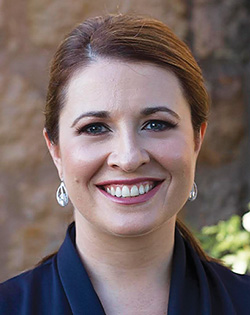 Susan Peters, Ph.D.
Susan Peters, Ph.D. -
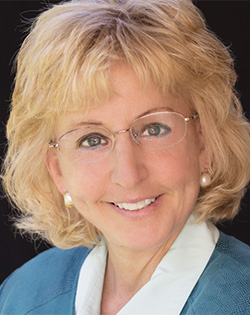 Wendy Lynch, Ph.D.
Wendy Lynch, Ph.D.
11:30 AM - 12:15 PM
Pricing
Through February 19, 2026
US$1,095.00
Member
US$1,395.00
Nonmember
After February 19, 2026
US$1,295.00
Member
US$1,595.00
Nonmember
Speakers
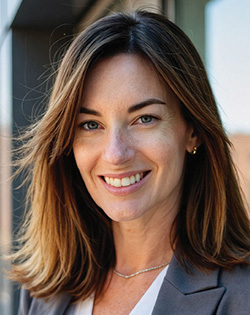
Kathryn Dailey, M.A.
Assistant Vice Chancellor of Health and Wellness
University of Colorado-Boulder

Lawrence Jones, Ph.D.
Senior Vice President
Edison Electric Institute

Susan Peters, Ph.D.
Senior Research Scientist and Associate Director of Harvard Center for Work, Health, and Well-being
Harvard T.H. Chan School of Public Health





